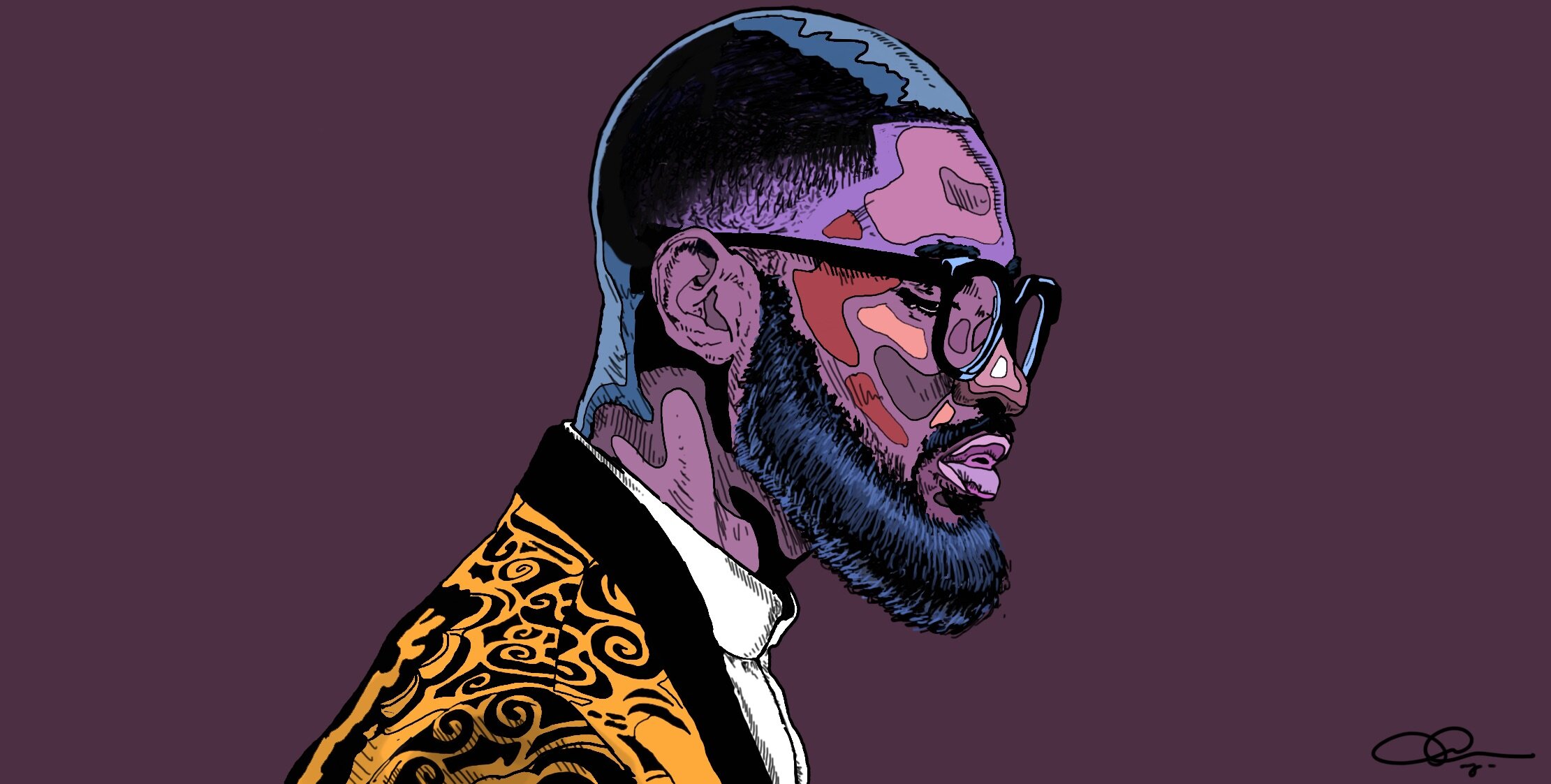Ric Hassani
Illustration by Ayo Arogunmati
Mr. Hassani, how has your childhood experience impinged on your music career?
My music is an expression of myself and my childhood is the foundation of who I am. I joined the church choir at a young age and that became the foundation for everything you see today. The choir helped me to find my voice and I think as a child a seed was planted in me which has germinated into the present reality.
Are you bothered by the perception that your fashion is more important than your music?
I am a musician. I began to put effort into my fashion so that I can have a stronger image, brand and style that resonates with the public. While I have a strong interest in fashion, I discovered fashion, whereas music is my calling and I will always be a musician. However, I am appreciative that the two aspects of my interest are working out.
Riverland is the name of your record label. Did you have any interest in working with an established label?
Riverland is a collaborative effort between me and other musicians I regard in high esteem. I I had no intentions of owning a label because I always wanted to be signed with an established record label. So far, I have not been approached by a deal that is mutually beneficial, although quite a number of interesting offers have been brought to my attention.
How challenging is it being independent?
Being an independent artist in an industry like ours could be quite tasking and challenging. You have to manage all aspect of the artistic process as well as, the management of the business of operating a record label. Lately, I am working on my album "The African Gentleman” and it has been a challenge balancing it with my duties as an owner of a record company.
You built a strong fanbase in a short-period, did you expect this type of response to your music?
Every Artist wants their music to connect with a wide range of listeners, but we, artists, never set out a timeline because you can never tell if or when it may happen. Personally, I did not expect my fan base to have grown the way it did. What I think occurred is that I created music that exceeded people’s expectations and allowed them to escape with their imagination.
In 2015, you became the first Nigerian artist to headline the Lake of Stars Festival in Malawi. Were you ready for the opportunity?
When Lake of Stars emailed me about headlining the show with Uhuru, I did not believe it. Getting there and seeing the response to my music let me know that I deserved the opportunity. I know I work hard and I am persistent, but you never know how far your effort goes into providing you with the chances that are presented to you. What you love and the dedication placed behind it will make a way for you.
Your song gentleman sheds light on violence against women, what were the influences behind the record?
I have a friend who went through a similar situation. Each time her boyfriend maltreats her she reaches out to me for help, but my words were not enough to stop her from going back to him. I chose it as a subject matter and thought that composing the song and representing it visually through a video will help people know more about domestic abuse and fight it in our society.
Which of your contemporaries provides you with inspiration?
Wizkid, because he started from the ground floor and he has attained far more than expected in the genre. On the foreign scene would be Drake because I like his consistency and branding.


